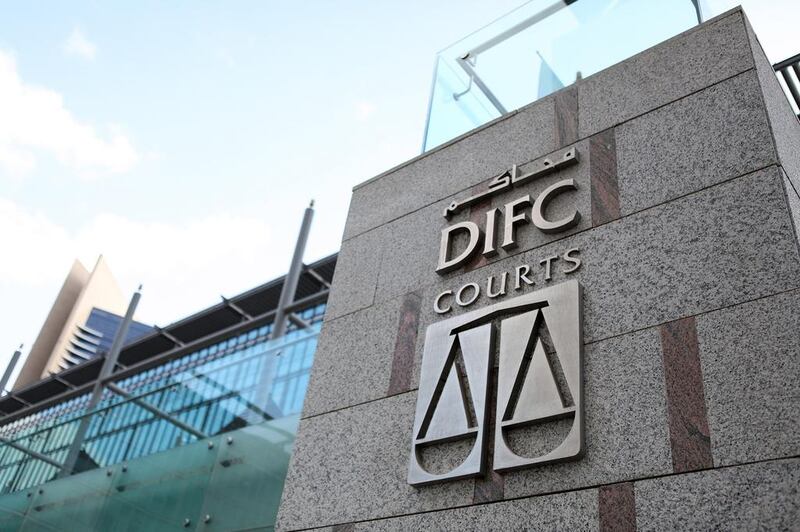The DIFC Courts expect the value of cases handled at the Court of First Instance this year to rise as bigger cases make it into the legal system of Dubai’s financial free zone, the courts’ registrar said on Monday.
“I am not expecting a significant increase in the number of cases this year,” said Mark Beer. “But what we may well see this year is the continuing trend of increasing value of cases that come to the court.”
The total value of the 295 cases handled at DIFC Courts surged last year to a record Dh5.56 billion, greater than the combined value of cases handled in 2012, 2013 and 2014.
In the Court of First Instance, the number of cases rose 9 per cent last year from a year earlier. The value of cases handled in the Court of First Instance, including arbitration-related cases and counter-claims, nearly trebled to Dh4.46bn last year compared with Dh1.55bn in 2014.
The average Court of First Instance case value, excluding arbitration-related cases and counter-claims, soared to Dh89 million from Dh51.1m a year earlier, with the majority of case related to international disputes.
The cases handled at the Small Claims Tribunal nearly doubled to 216 last year from 116 cases in 2014. About 90 per cent of all cases are resolved within four weeks in the Small Claims Tribunal, which supports the small and medium-sized enterprise (SME) sector.
The DIFC Courts would like to maintain its 92 per cent settlement rate through 2021, when it is aiming to become a leading commercial court, in line with Dubai’s growth plan Vision 2021, said Mr Beer.
Separately, 800 wills have been registered at the DIFC Wills and Probate Registry, with the vast majority coming from South Asians and Europeans, Mr Beer said.
The registry allows non-Muslim expatriates over the age of 21 to register wills written in English in the DIFC Courts, doing away with the need for translating wills into Arabic and having them attested by a local notary public.
“Those who have already created that wealth tend to be from South Asia and want to protect that wealth for future generations and Europeans tend to be younger, aspirational and having a life event, getting married and having children,” said Mr Beer.
dalsaadi@thenational.ae
Follow The National's Business section on Twitter





